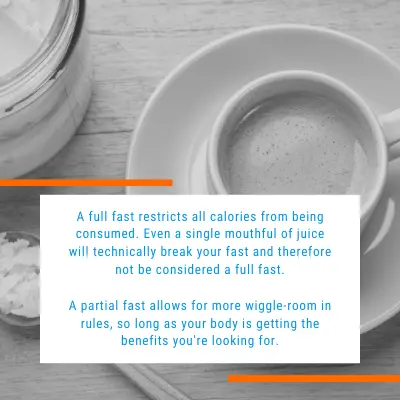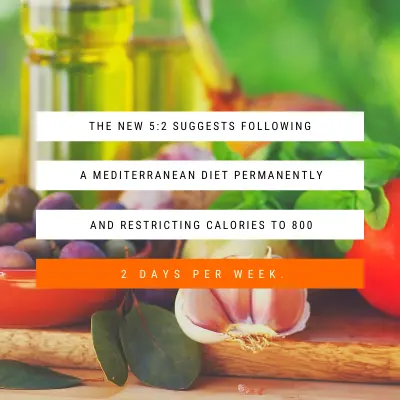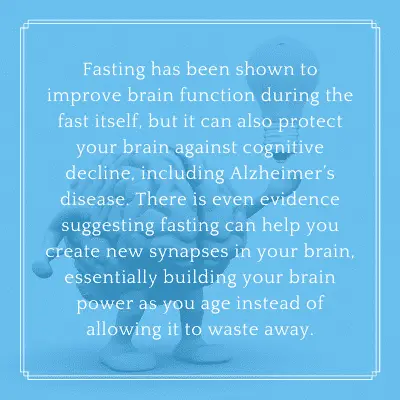There is no doubt that fasting today has become one of the biggest trends around the world. Nutritionists and dietitians recommend different types of fasting for cleansing or detoxifying your body, and many holistic or alternative health practitioners suggest fasting for various medical conditions or losing weight. Even before taking certain medical tests that require blood work, fasting is necessary.
Because fasting has become so popular, there are many different ways to fast that promise extraordinary results. Fasting can have incredible health benefits, but it shouldn’t be used as a quick fix, miracle cure or excuse to live an otherwise unhealthy life.
The type of fast that is right for you will depend on your current health, weight, lifestyle and even your personality. In this article, we’ll discuss many of the different types of fasting, their benefits and how they can affect and improve your health.
What is Fasting?
Fasting is simply a time period in which you don’t eat or drink anything except water. The length of time depends upon the type of fast you commit to and your goals for the fast.
Let’s explore the different types of fasting and how beneficial they are for our health.
First, all fasting can be done either dry or wet, with the exception of prolonged fasting which much always include water.
Dry Fasting
Dry fasting means you cannot eat or drink at all during your fast, not even water. It’s further divided into two categories – hard and soft. In hard dry fasting, you can’t even come in contact with water, whether that’s washing dishes or brushing your teeth. We soak up water through the pores in our skin and this is prohibited during a strict hard dry fast.
In soft dry fasting, you can do your everyday chores, take a bath and keep your teeth clean.
Dry fasting is a relatively extreme form of fasting and, because of this, the risks and benefits increase in equal proportion. You should always have someone monitoring you for safety if you choose to dry fast, and you should limit it to an absolute maximum of 3 days, however, during this time, you can see some pretty impressive benefits.
Water Fasting
Water fasting allows you to drink as much water as you’d like while you avoid any kind of food or calorie consumption for a set period of time.
Among other benefits, water fasting for three days can effectively reset your immune system and optimize your metabolism.
Water fasting is more popular than dry fasting partly because it’s much easier to practice, but also because it’s generally accepted as safer and has some unique benefits.
Since our bodies are so dependent on being well hydrated, drinking plenty of water during your fast can be magical for your skin tone. Dryness and redness will disappear, sometimes even along with age or sunspots.
Water is also critical in removing waste from your body so if you’re interested in cleaning out the damage from inside, it has to have somewhere to go. Water will help get it out of your system entirely.
Partial Fasting vs Full Fasting
A full fast restricts all calories from being consumed. Even a single mouthful of juice will technically break your fast and therefore not be considered a full fast.
A partial fast allows for more wiggle-room in rules, so long as your body is getting the benefits you’re looking for. Some types of fasts that we’ll look at next restrict calories during specific times periods where others simply limit the number of calories you can eat on certain days.
There are even some specific diets that are designed to give you some or all of the results of fasting without requiring a full fast. We won’t go into these in this article since they’re not true fasts, but the Fasting-Mimicking Diet and Juice Fasts are examples of partial fasts as well.

Different Types of Fasting and Their Meanings
Intermittent Fasting (IF)
Intermittent fasting is one of the most popular health trends of our decade. It has been praised for resolving a lot of health problems, not least of which is helping dieters finally achieve sustainable weight loss. I personally find intermittent fasting the most effective primarily because it’s easy to develop into a habit, helping sustain the benefits for the long-term.
As with all habits, it will take you a while to adjust to the new eating pattern, but in a surprisingly short amount of time, you should start seeing differences in your energy levels and hunger cues, both good signs of health.
IF is more technically called time-restricted feeding (TRF), because it refers to limiting your food consumption to a specific window of time each day. Most people start with fasting for 12 hours a day and eating 12 hours a day. You can use this as a foundation to increase your fasting window up to 16 hours per day, for the most popular 16:8 fast.
IF can help alleviate many different health problems, including heart issues, diabetes, and weight issues, but it’s also an effective way to simply promote a healthier lifestyle for yourself. With a little bit of self-control in this area of your life, you will quickly find that you can control anything you want to!
Alternate-Day Fasting (ADF)
Alternate fasting is a type of intermittent fasting in which, as the name suggests, you fast on every alternate day. Some people find it easier to either eat at will all day or not eat at all, as compared to restricting the time of day you can eat every single day. It really depends on your preferences and lifestyle.
Both TRF and ADF allow you to eat anything you choose without counting calories when you’re not fasting, but because of restricting how often you eat, most people will find that they naturally eat fewer calories overall. For overweight individuals, this will usually lead to quick, sustainable and healthy weight loss.
Fasting is well known for its ability to heal your metabolism, helping to manage your appetite and blood sugar levels naturally. Standard calorie-restrictive diets usually end up damaging your metabolism even further, leading you to gain any lost weight back. This isn’t usually an issue for people who incorporate fasting into their lives.
5:2 Fasting
5:2 fasting is another form of intermittent fasting that somewhat mimics a fast, rather than being a true fast. It has become a popular approach all around the world and is one of the most widely practices styles of fasting thanks to the prestige and popularity of the founder, Dr. Michael Mosley.
To follow this diet, you eat normally for 5 days a week and then restrict your calorie consumption for the remaining 2 days, though these days are usually not consecutive. However, you don’t have to entirely eliminate all food. The diet allows you to eat between 500 – 800 calories on your fasted days.
The original diet didn’t dictate what you eat during the non-fasting days, but with more research, the new 5:2 suggests following a Mediterranean Diet permanently and restricting calories to 800 2 days per week. This incorporates the results of fasting with the proven benefits of eating a nutrient-dense, plant-based balanced diet on a regular basis.

Short-term Fasting (24-48 hours)
Short-term fasting can include any of the above types of fasts as it simply refers to fasting that lasts a maximum of 3 days.
Any kind of fasting can be difficult for beginners at the start, especially if you’re used to the constant grazing of a Standard American Diet (SAD) or Western Pattern Diet (WPD). Fasting is something that you can incorporate into the rest of your life, so there’s no need to jump into the deep end, so to speak. There’s nothing wrong with starting slow and letting your body adjust to a new way of eating.
There are 3 general approaches to short-term fasting:
- Beginners: keep the fasting hours in between 1-16 hours.
- Intermediate: Try eating only one meal a day, fasting for a single 24-hour period, or attempt ADF with the 5:2 Diet
- Advanced: For those used to fasting who want a challenge and reboot, try an extended water fast of 48 – 72 hours no more than 4 times per year
Prolonged Fasting (3+ days)
Prolonged fasting, as you may guess, lasts for a minimum of 3 days and can be practiced up to 3 weeks with the proper safety protocols in place.
While abstaining from food for a long period of time may suggest an extreme weight loss plan, the more persuasive reason to fast for a longer period of time is impressive results in reducing risk factors associated with chronic diseases.
If it’s weight loss your interested in, a regular routine of shorter fast will have more sustainable results for you, but a long fast gives your body more time to recycle old, damaged and dead cells, not to mention get rid of toxic waste in your body. Through a process called autophagy, all the cells in your body are assessed for health and either broken down or repaired as appropriate. In this way, fasting will not only reduce your risk of developing heart and brain disease or cancer, but it can also make your individual cells biologically younger.
Health Benefits of Fasting
All types of fasts will provide similar benefits, though the type of fast may alter how quickly you see results and how sustainable those results are over time. Most people fast for one or more of the following reasons:
- Improved hormonal balance. During a fast, insulin levels drop allowing your body to recover from insulin sensitivity over time. Leptin levels will also return to normal, helping to better regulate your appetite, and human growth hormone will balance to allow us to more effectively regulate our body composition.
- Manage type 2 diabetes. Diabetes is the result of sustained insulin resistance and poorly regulated insulin. By healing your insulin response, fasting can help naturally reverse type 2 diabetes, though should always be supervised and done with a doctor’s approval and help.
- Anti-aging. Most visible signs of aging are caused by oxidative stress, which is reduced when you fast. Even invisible signs of aging, such as all the leading causes of death by disease in the USA, are improved.
Brain Health and Protection

- Reduced inflammation. Do you know that inflammation in the body is one of the root causes of all disease and pain in your body? Fasting can reduce chronic inflammation quickly and permanently if healthy habits are maintained.
- Lower Risk of Heart Disease. In addition to helping to reverse metabolic syndrome, fasting also improves blood pressure levels, helps to balance cholesterol levels and can even improve plaque build-up in your arteries. All of these benefits will reduce your risk of having a stroke or heart attack.
- Potentially Prevent Cancer. Cancer research is possibly one of the highest funded areas of research and much of that research is being done on the benefits of cancer. It’s too early still to claim fasting can cure cancer, but it has shown incredible potential for preventing it
Ultimately, the benefit of fasting is offering you the potential to live a longer life in better overall health.
Frequently Asked Questions about Types of Fasting
What is the best fasting diet for weight loss?
When it comes to weight loss, short term intermittent fasting will create the most long-lasting results. Long-term fasting might help you drop weight quickly, but it won’t necessarily stay off. If you commit to short-term fasting on a regular basis, ideally for the rest of your life, your weight will slowly but surely find its ideal balance and then it should stay there indefinitely.
Intermittent fasting, including alternate-day fasting and the 5:2 diet, will help to repair your metabolism and hormonal balance, helping your body naturally process the food you eat and regulating your appetite. This will allow you to release unnecessary weight.
Unless you stop fasting and return to your poor eating habits, you should be able to keep your weight at the ideal level for your unique body size and composition.
What should I eat to enhance my fast?
Fasting in its truest sense doesn’t require you to change what you eat or how much you eat, it simply restricts how often you eat. That being said, if you’re trying to improve your health and/or your weight, there is no doubt that what you eat makes a difference as well.
Studies are absolutely clear: choose a whole-food, plant-based diet for best health. Aside from fasting, the best thing you can do for your health is to eat fewer pre-packaged, highly processed foods and eat more nutrient-dense real food.
Incorporating more vegetables, fruits, nuts, seeds, and legumes into your daily eating is only going to improve your health. If you choose to eat meat, the best choices are going to be hormone and anti-biotic free and in their most natural form. For example, choose steak over a fast-food hamburger and a chicken breast over chicken fingers. Getting plenty of healthy fats into your diet is also important, but these fats should come from avocado, nuts, fatty fish and high-fat dairy if your body allows, rather than fried foods or processed deli meats.
The more nutrition you can add to your diet the better, though, just like fasting, taking small steps in the right direction is much more sustainable than massive changes you won’t stick to.
Should you eat breakfast when you fast?
This is a somewhat amusing question, though popular. Breakfast is literally the definition of breaking your fast, so if you’re doing a true fast and not eating any calories at all, you would not eat breakfast. However, if you’re practicing intermittent fasting, most people will find that they see the best results when they open their feeding window earlier in the day.
Eating breakfast will help provide you with the energy needed to power you through your day. Instead of waiting until the afternoon to break your fast, it is highly recommended that you eat earlier during the day and stop eating no later than 7 pm.
Your body doesn’t need extra energy to relax and sleep, and most people who eat after their last main meal of the day make questionable quality choices with their food intake, so eliminating this option is a great way to improve your health in itself. It will also help you sleep more deeply if you don’t have to digest food when you go to bed, improving your natural repair and recovery.
Start Fasting The Right Way
Fasting can be confusing and a little intimidating when you first start, especially if, like me, you were raised to believe that you need to eat every few hours in order to sustain your energy levels. Working with a coach can help you figure out what style of fasting is going to fit the best into your current lifestyle and support you through the downs while celebrating each and every one of your wins.
I would love to be that support system and guide for you. Schedule an introduction with me at no cost and with no obligation. Let’s just have a chat and see where you want to go next.





